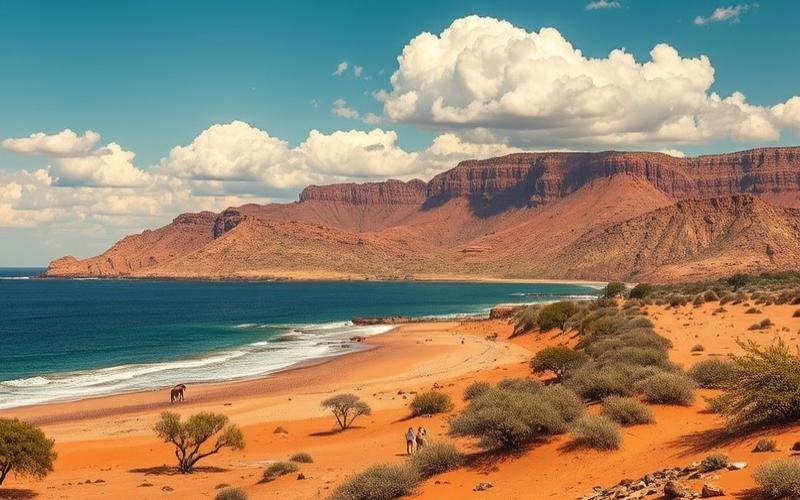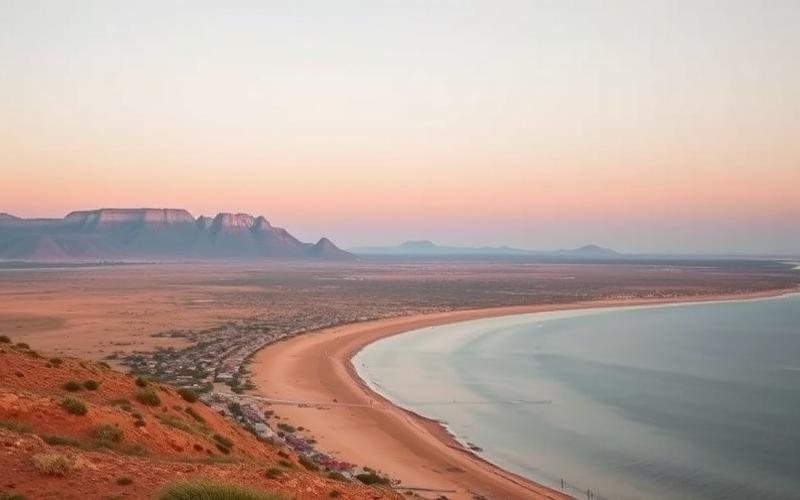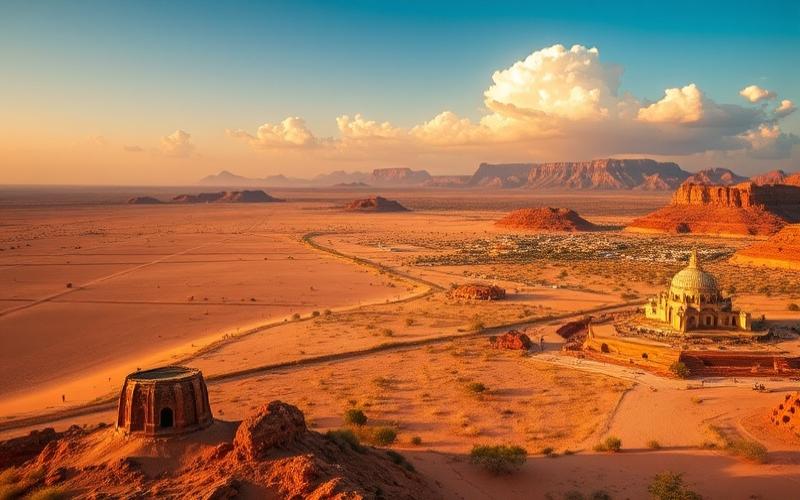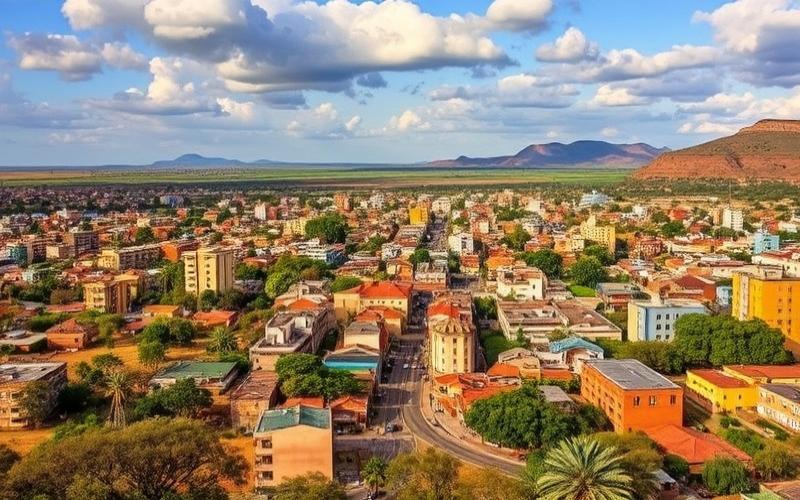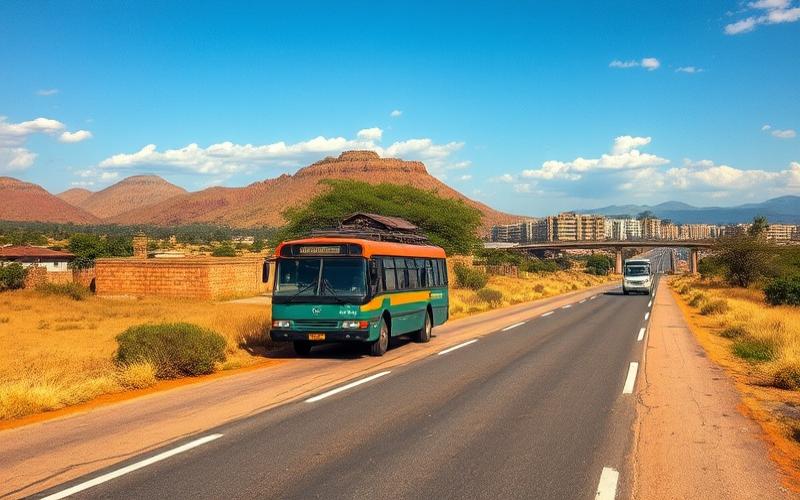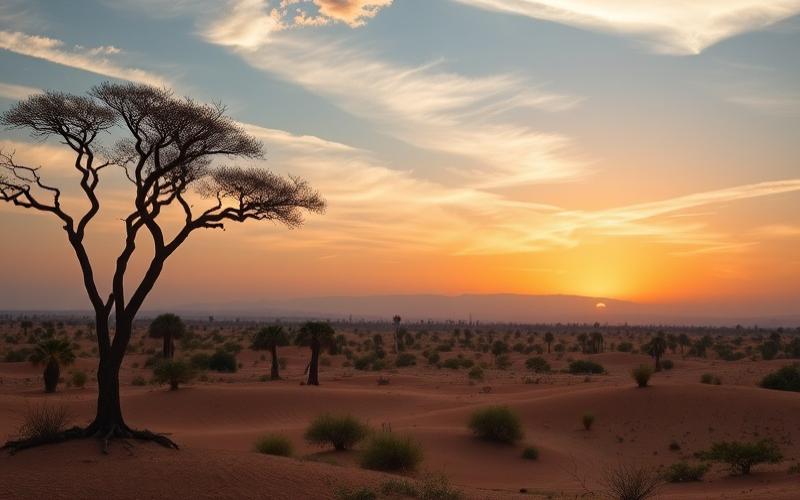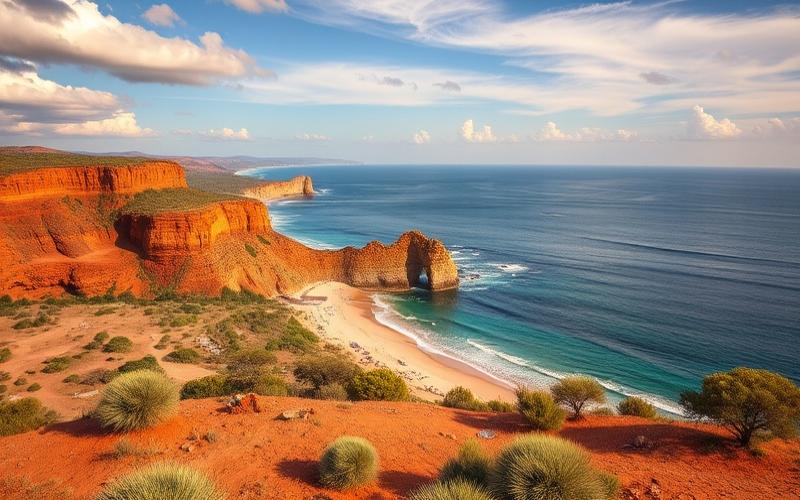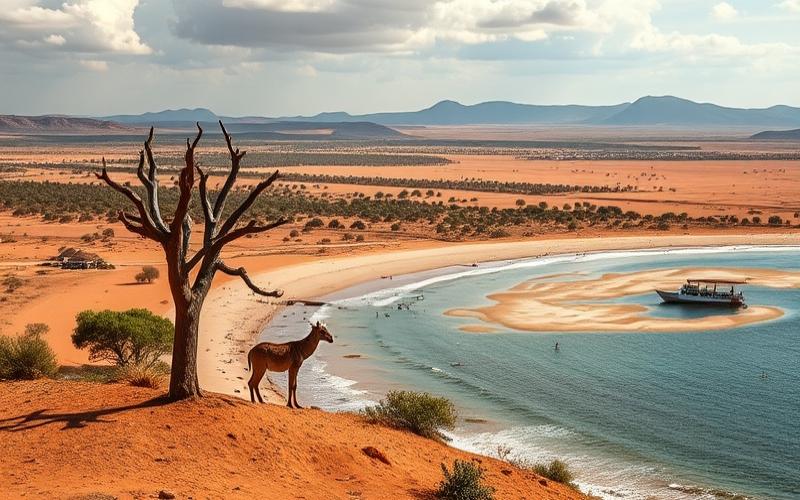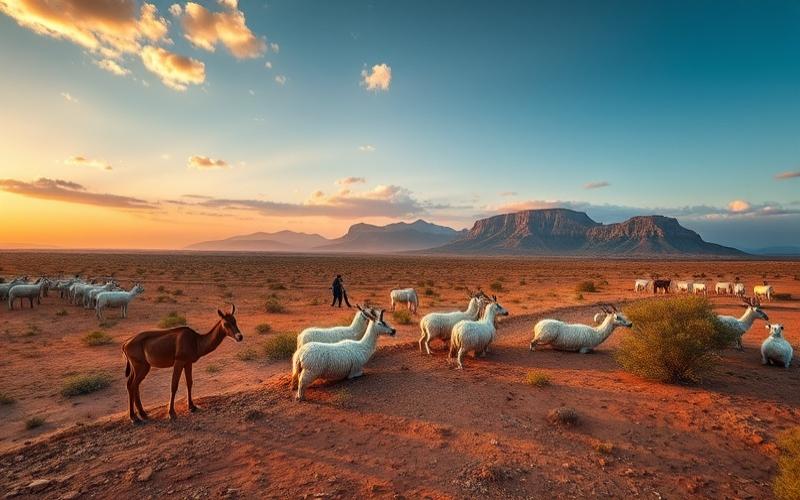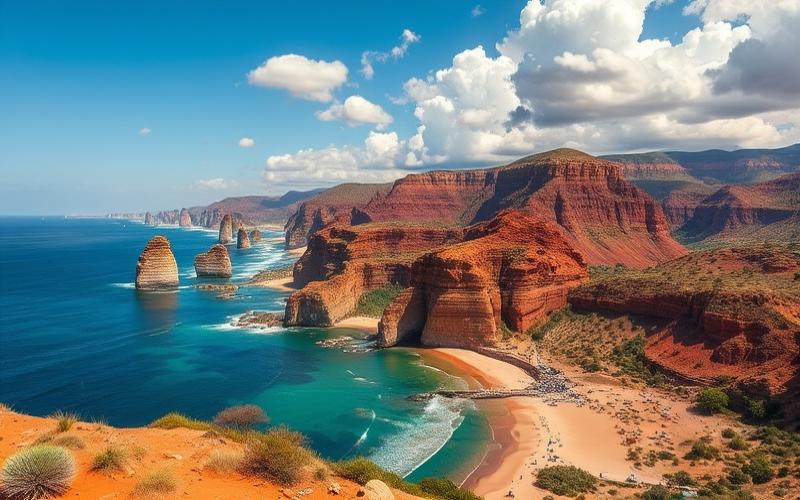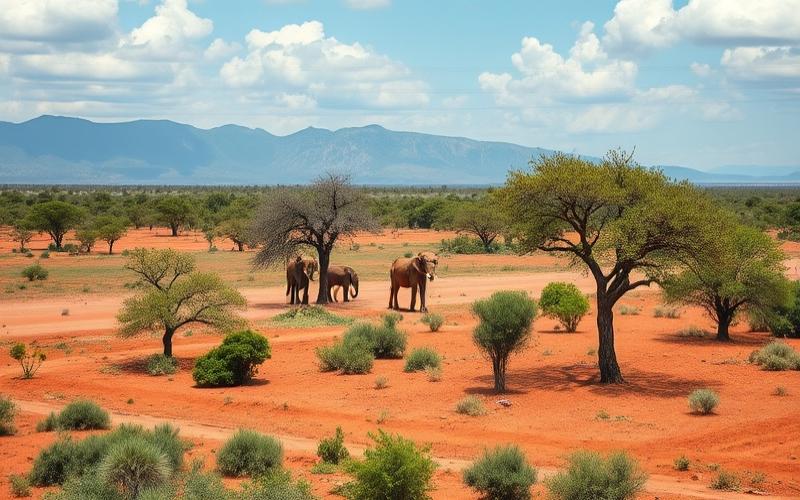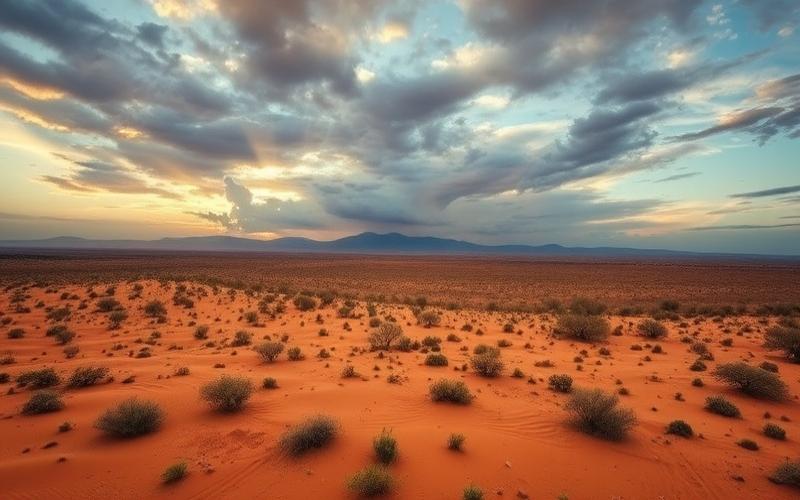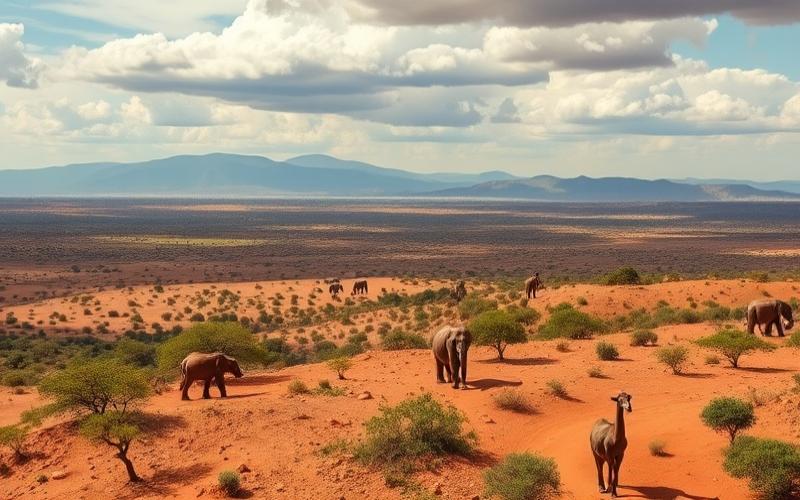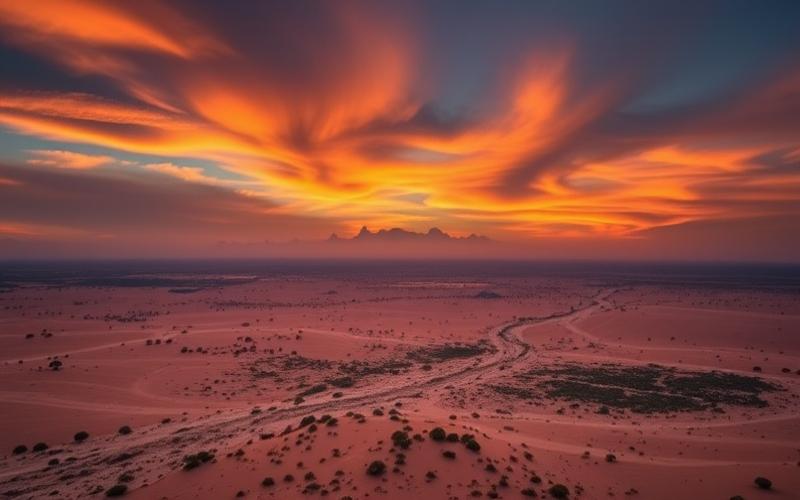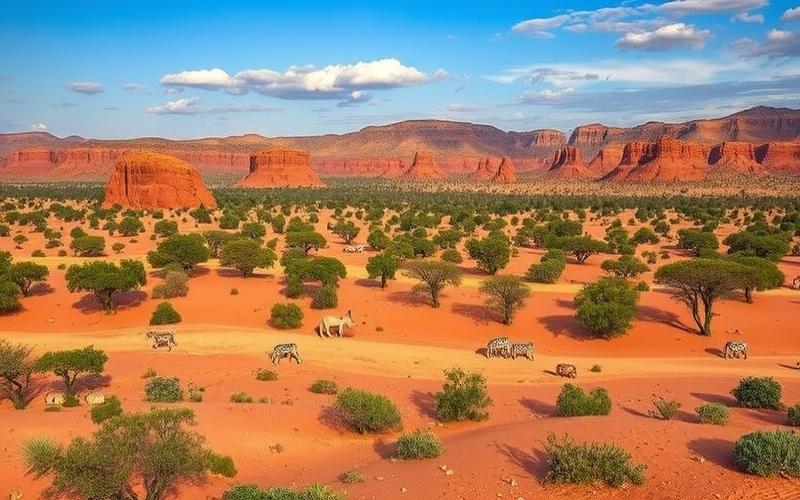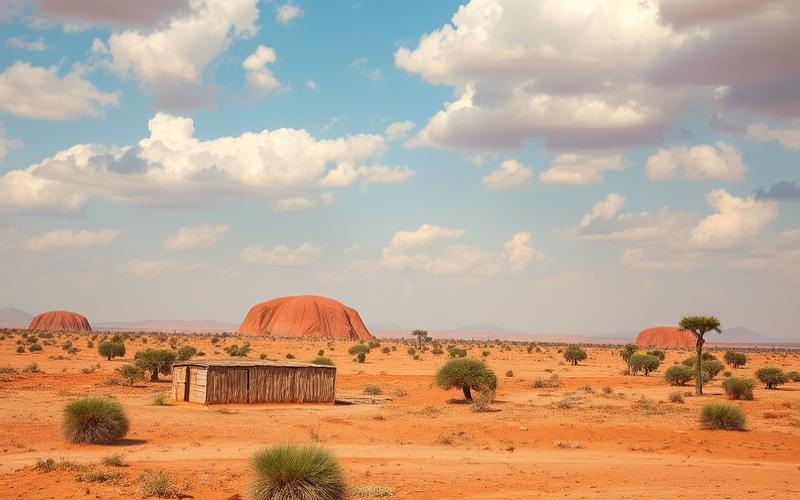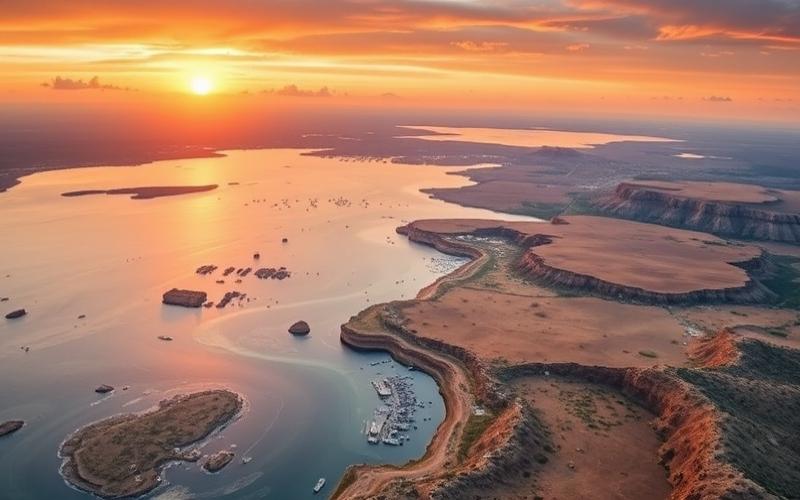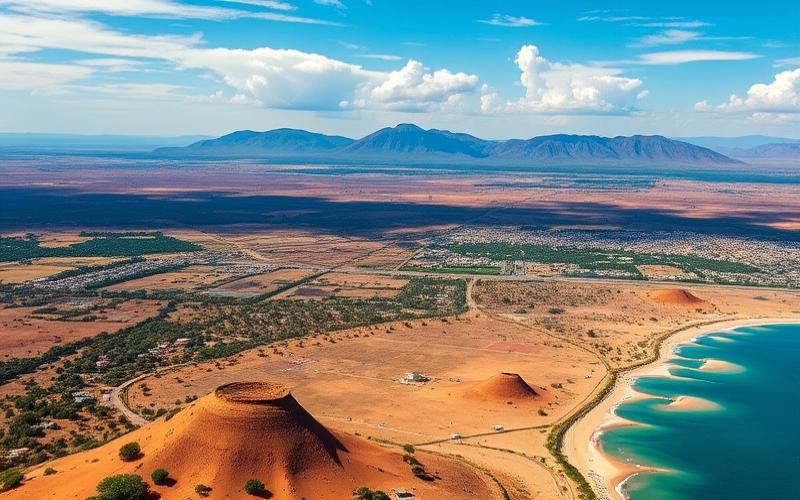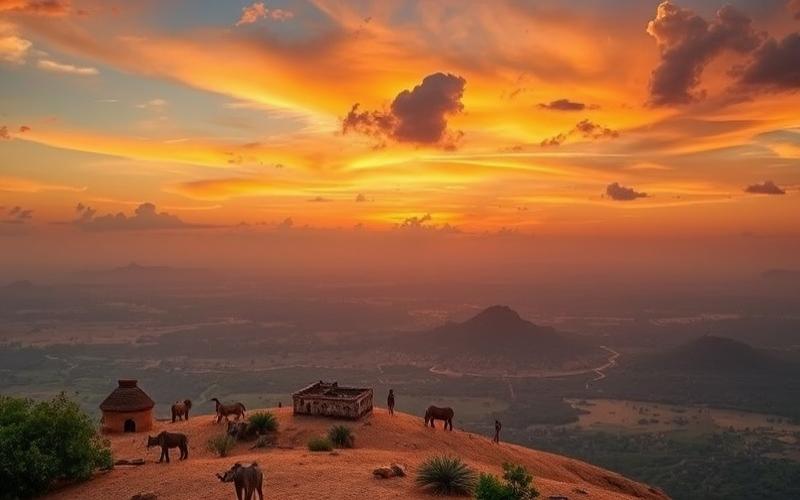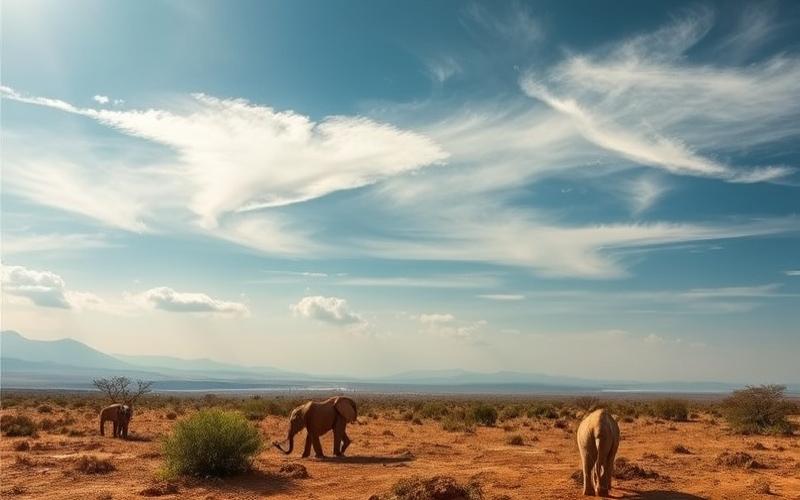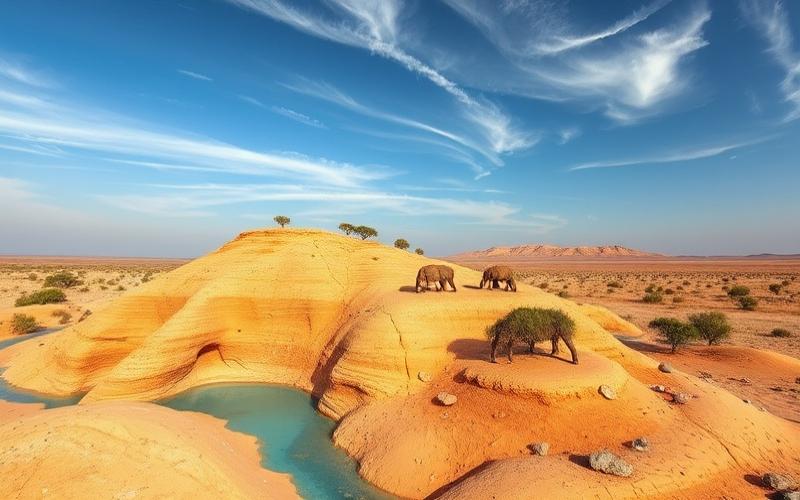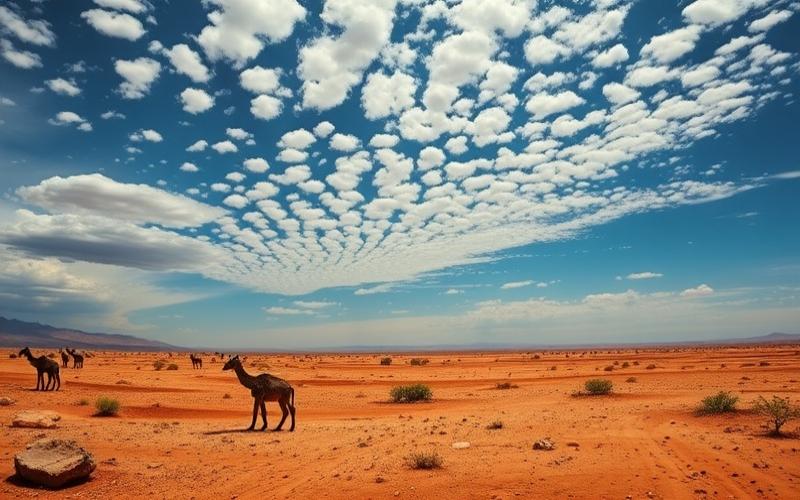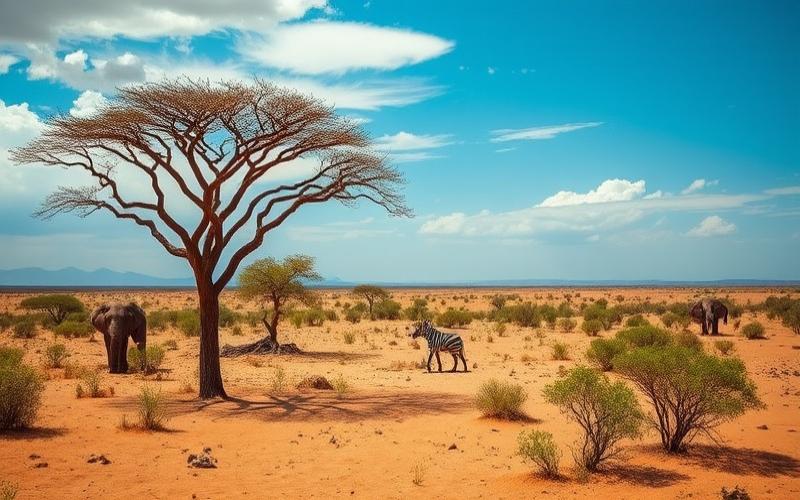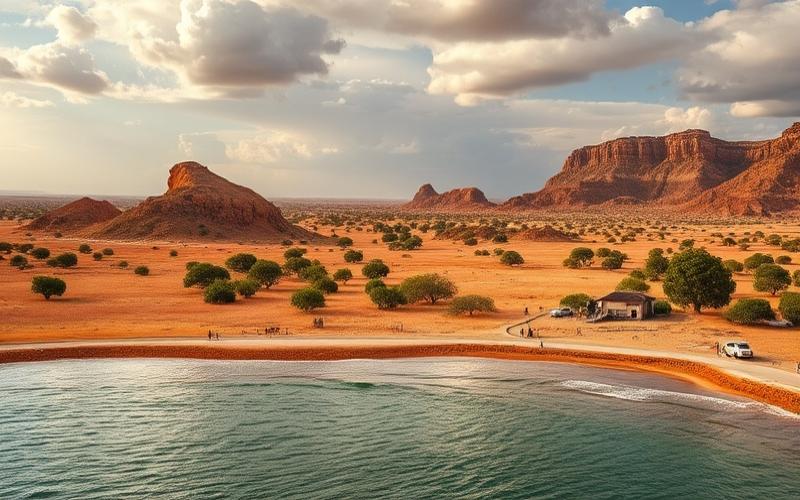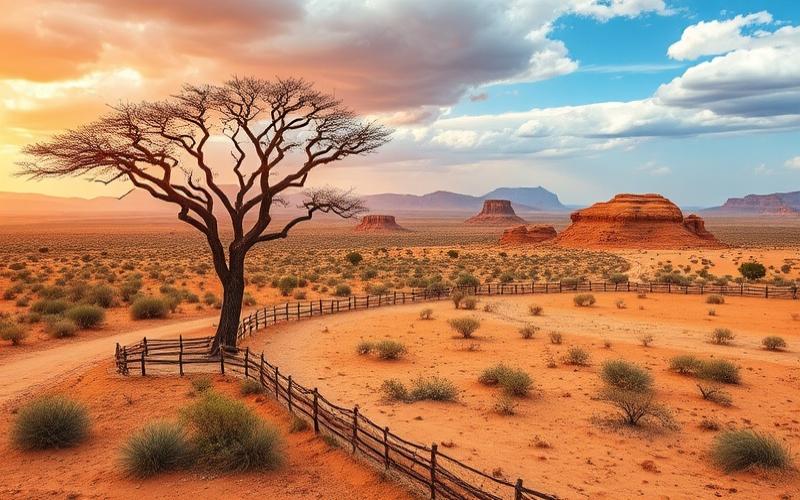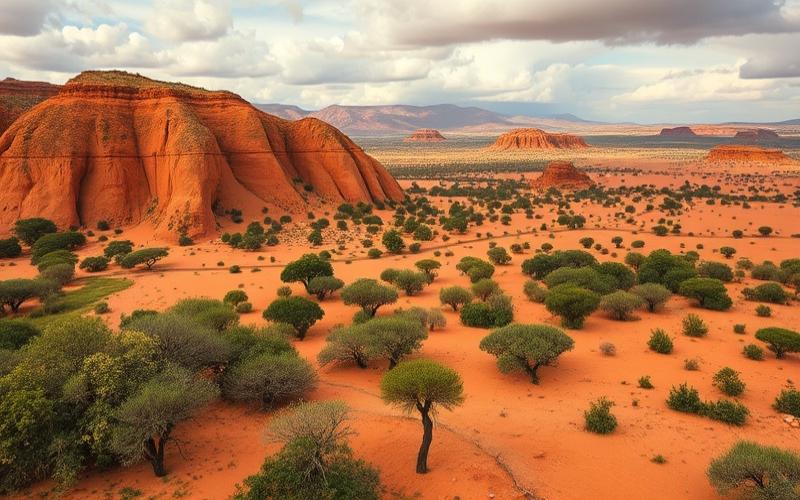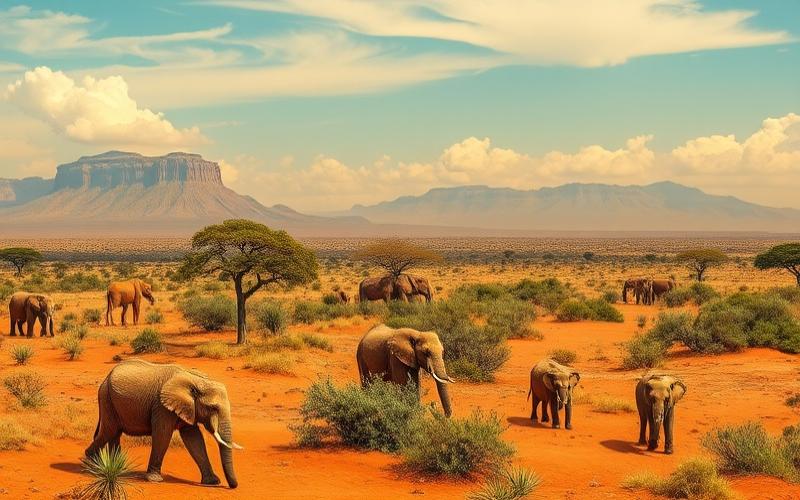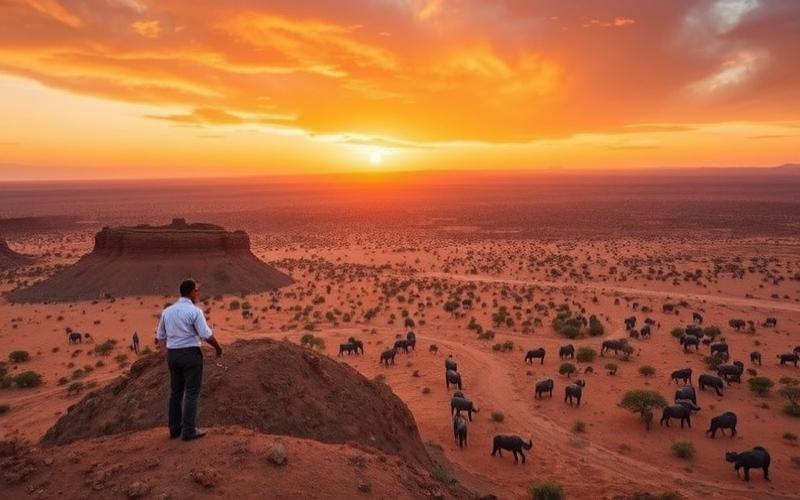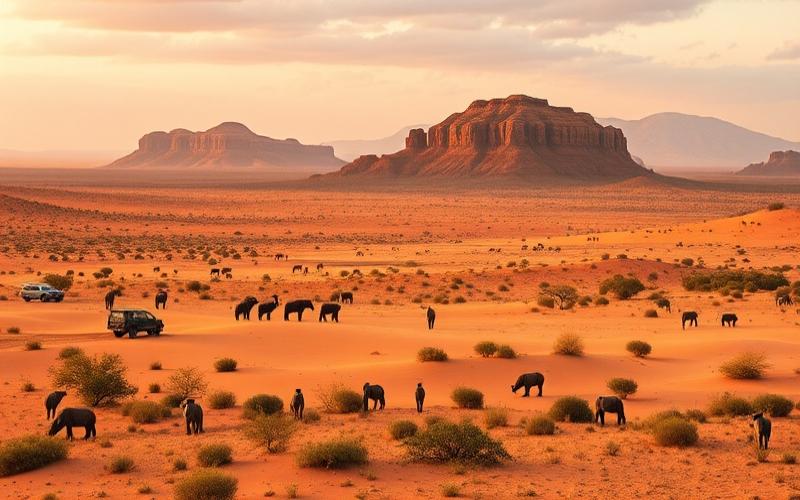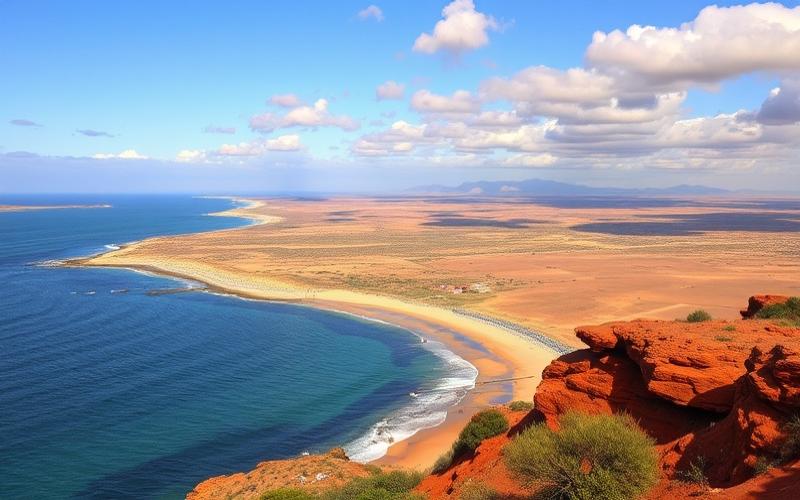
 Published on and written by Cyril Jarnias
Published on and written by Cyril Jarnias
South Africa, often cited as a pioneer for LGBTQ+ rights due to its progressive Constitution and explicit rejection of discrimination based on sexual orientation, represents a fascinating paradox on the African continent.
In a country where cultural and historical diversity shapes daily life, it’s essential to understand how LGBTQ+ communities navigate between legal achievements and often contrasting socio-economic realities.
Although significant advances have been made, including same-sex marriage recognized since 2006, this mosaic of rights alone doesn’t guarantee full acceptance or unobstructed visibility.
The exploration of LGBTQ+ life in South Africa thus reveals a vibrant scene, but one complicated by unique challenges, calling for continued engagement both politically and in everyday attitudes.
LGBTQ+ Rights in South Africa
Historical Evolution of LGBTQ+ Rights in South Africa
- 1996: The new post-apartheid Constitution made South Africa the first country in the world to explicitly prohibit discrimination based on sexual orientation. This major breakthrough was achieved through the efforts of activists like Simon Nkoli and the National Coalition for Gay and Lesbian Equality.
- Decriminalization: Following the 1996 Constitution, the Constitutional Court invalidated laws criminalizing homosexuality in 1998.
- 2006: South Africa became the first African country to legalize same-sex marriage, and the fifth worldwide. Adoption by same-sex couples also became legal.
| Date | Legislative Milestone |
|---|---|
| 1996 | Constitutional ban on discrimination |
| 1998 | Decriminalization of homosexuality |
| 2006 | Legalization of same-sex marriage |
| Since | Adoption and parentage for same-sex couples |
Constitutional Protections
- The Constitution guarantees equality and non-discrimination for all individuals, including on the basis of sexual orientation and gender identity.
- These protections apply to access to employment, housing, healthcare, and privacy.
Persistent Challenges
- Despite a progressive legal framework, social reality remains marked by widespread discrimination and violence.
- Over 80% of South Africans still consider homosexuality “wrong.”
- Black LGBTQ+ individuals, particularly lesbians and trans people, face assaults, harassment, and hate crimes like “corrective rape.”
- Enforcement of protective laws is often inadequate, especially in rural areas and townships.
- Police services and administration lack training and sensitivity, discouraging victims from filing complaints.
Recent Statistics
- According to a 2021 survey, about 13% of South Africans report knowing an openly LGBTQ+ person in their circle.
- In 2020, over 20 murders of LGBTQ+ individuals were recorded, mostly lesbian women and transgender people.
- Asylum applications from LGBTQ+ individuals fleeing persecution in other African countries are often rejected, despite South African legislation.
Testimonials
“We are judged, robbed, insulted, and threatened with death,” testifies James, a gay refugee, who reports being harassed multiple times simply for walking with transgender friends.
“South Africa has the most beautiful laws, but people in the administrations know nothing about homosexuality,” explains Junior, a young Zambian refugee whose asylum application was rejected after humiliating interrogations.
Role of Local and International Organizations
- Organizations such as the National Coalition for Gay and Lesbian Equality (NCGLE), Triangle Project, OUT LGBT Well-being, and Gender DynamiX play a crucial role in defending rights, training, advocacy, legal support, and psychological assistance.
- International NGOs like Human Rights Watch and Amnesty International support documenting violations and pressuring authorities.
- Pride marches, notably organized in Johannesburg and Cape Town, have become key moments of visibility and advocacy.
Recent Political and Social Discussions
- Public debates currently focus on improving protection against hate crimes, police reform, and recognizing rights for trans individuals (including access to civil status and appropriate healthcare).
- Some political and religious leaders continue to make discriminatory statements, fueling social hostility.
- Civil society mobilizations have secured government commitments to strengthen the fight against anti-LGBTQ+ violence, but implementation remains slow.
South Africa combines an exemplary legal framework with a social reality that remains very difficult for many LGBTQ+ individuals. Legislative progress is undeniable, but the fight for real equality and daily safety remains central.
Good to Know:
South Africa was a pioneer in legalizing same-sex marriage in 2006 and offering constitutional protections against discrimination; however, despite these advances, LGBTQ+ individuals still face violence and discrimination, requiring continued action from local and international organizations.
LGBTQ+ Communities and Their Influence on Society
The evolution of LGBTQ+ communities in South Africa since the end of apartheid is set in a context of struggle for civic and social equality, marked by intersectional mobilization and unprecedented legal advances on the African continent.
Key Milestones in LGBTQ+ Emancipation and Visibility:
- During the final years of apartheid, activists like Simon Nkoli articulated the fight against racism and homophobia, asserting that emancipation couldn’t be partial: “I am black and I am gay. I cannot separate the two parts into secondary and primary struggles.”
- In 1993, the creation of the National Coalition for Gay and Lesbian Equality (NCGLE) secured the inclusion of protection against discrimination based on sexual orientation in the 1996 South African Constitution, a world first.
- LGBTQ+ mobilization played a key role in building the post-apartheid democracy, embedding the notion of equality for all at the heart of the national project.
Progressive Laws and Impact on Society:
- In 2006, South Africa legalized same-sex marriage, becoming the first African country and fifth worldwide to do so.
- These legal protections fostered greater visibility for LGBTQ+ individuals and stimulated the creation of community organizations and events like Pride, with the first South African march dating back to the post-apartheid era.
- South African laws remain among the most progressive worldwide regarding LGBTQ+ rights, even if explicit protection of gender identities and sex characteristics only came with more recent legislation.
Influence on Contemporary Culture:
| Domain | Examples of LGBTQ+ Influence |
|---|---|
| Visual Arts | Works by queer artists exhibited in major galleries; emergence of LGBTQ+ art collectives |
| Music | Openly LGBTQ+ musicians and singers; songs denouncing homophobia and celebrating diversity |
| Media | Queer personalities in mainstream media; series and documentaries addressing LGBTQ+ realities |
| Festivals | LGBTQ+ cultural and film festivals (Out in Africa, Durban Pride, etc.) |
The South African pride flag, merging the rainbow flag and the national flag, symbolizes diversity and inclusion, and aims to raise awareness about persistent issues like hate crimes or so-called “corrective rape” violence.
Persistent Challenges and Community Resilience:
- Despite advanced laws, LGBTQ+ individuals still face high levels of discrimination, violence (including hate crimes and “corrective rape” targeting particularly black lesbians), and social exclusion, especially in rural or conservative areas.
- Violence and discrimination also manifest in access to employment, healthcare, and education.
- The fight for equality continues through:
- Advocacy for the effective enforcement of existing laws.
- Development of support and solidarity networks.
- Promotion of positive representation in culture and media.
Key Takeaways:
South Africa, driven by historic intersectional mobilization, embedded the protection of LGBTQ+ rights at the core of its new democracy, becoming a legal and symbolic model in Africa. LGBTQ+ communities have contributed to the country’s cultural transformation but still face structural discrimination that fuels their activism and creativity.
Good to Know:
Since the end of apartheid, South Africa’s LGBTQ+ communities have played a crucial role in the progress of civil rights, notably with the legalization of same-sex marriage in 2006, but they continue to face persistent challenges such as discrimination and violence.
Challenges and Progress for LGBTQ+ Expatriates
| Specific Challenges for LGBTQ+ Expatriates in South Africa |
|---|
| Legal Obstacles: Absence of explicitly discriminatory laws, but uneven enforcement of protections and lack of specific framework for expatriates. |
| Integration Difficulties: Social hostility, persistent prejudices in certain local communities, difficulty being openly out depending on context. |
| Potential Discrimination: Frequent homophobic and transphobic violence (physical or verbal assaults), increased risks for lesbian women (corrective rape), social rejection in some religious or rural settings. |
| Administrative Barriers: Complex and sometimes hostile processes during refugee status or immigration applications on LGBTQ+ grounds, ignorance of LGBTQ+ realities by some officials. |
South African policies offer strong constitutional protection against discrimination based on sexual orientation and legalized same-sex marriage in 2006.
However, there’s a gap between the law and its implementation: assaults remain frequent, particularly against lesbians with the phenomenon of “corrective rape,” while administration may lack training or display discriminatory behavior during immigration procedures.
Formal rights don’t always guarantee daily safety or harmonious integration; some urban areas are more inclusive than others.
Notable Progress
- Early adoption of a protective legal framework at the constitutional level.
- Legalization of same-sex marriage, official recognition of LGBTQ+ couples, right to adoption.
- Growing mobilization of local NGOs like Free Gender that support victims and defend their inclusion.
- International organizations collaborating with local actors to raise awareness about homophobic/transphobic violence.
Available Resources
- Community networks like Free Gender offering psychological support, legal assistance, and educational workshops
- Associations such as Triangle Project providing health counseling, support groups, and resources dedicated to migrants
- Cultural events: Annual South African Gay Pride in Johannesburg/Cape Town; local queer festivals promoting visibility & exchanges
- Digital platforms facilitating connections among LGBTQ+ expatriates, sharing integration experiences
Future Perspectives
Emerging initiatives aim to strengthen administrative training regarding the reception of LGBTQ+ migrants, improve reporting of discriminatory acts to local authorities, and develop more safe spaces throughout the country. Dialogue between international organizations and South African institutions is progressing toward better concrete consideration of specific needs related to expatriation. Increased visibility during cultural events also contributes to lasting social change.
Summary List
- Expected strengthening of NGO/public administration cooperation
- Potential expansion of the associative network dedicated to newcomers
- Ongoing public awareness through media & educational campaigns
The situation remains mixed: major progress in formal rights but persistent daily challenges against latent social discrimination and unresolved institutional obstacles.
Good to Know:
LGBTQ+ expatriates in South Africa benefit from certain legal protections but still face integration challenges and must navigate through sometimes complex immigration policies. Local organizations offer valuable resources like support networks and cultural events, essential for their well-being.
Disclaimer: The information provided on this website is for informational purposes only and does not constitute financial, legal, or professional advice. We encourage you to consult qualified experts before making any investment, real estate, or expatriation decisions. Although we strive to maintain up-to-date and accurate information, we do not guarantee the completeness, accuracy, or timeliness of the proposed content. As investment and expatriation involve risks, we disclaim any liability for potential losses or damages arising from the use of this site. Your use of this site confirms your acceptance of these terms and your understanding of the associated risks.

